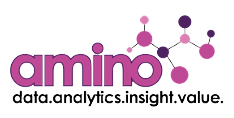
Data Analytics
What is it?
Data analytics is the process of examining datasets to uncover patterns, trends, and insights to inform decision-making. By leveraging advanced statistical techniques and data mining tools, businesses can extract valuable information from their data and gain a competitive edge. They can then use this information to optimise operations, improve customer satisfaction, develop new products, and identify emerging market trends.
Analytics can produce different types of outputs. These outputs are typically displayed in dashboards, reports or with models. They can be categorised as follows:
- Descriptive Analytics: Explains what happened in the past.
- Diagnostic Analytics: Examines why something happened.
- Predictive Analytics: Forecasts what is likely to happen.
- Prescriptive Analytics: Recommends actions to achieve specific outcomes.

Why is it Important
Data analytics is a key skill for businesses of all sizes. Even small businesses will often have large volumes of complex data.
Businesses can use dashboards to visualise descriptive and diagnostic data analytics insights. Data scientists and AI engineers can use Artificial Intelligence algorithms for predictive and prescriptive data analytics, creating forecasts and recommended actions.
MLOps (Machine Learning Operations) can turn these models developed by Data Scientists into enterprise production services.
Good insights from analytics and AI depends on a strong data foundation. From there, Data scientists can drive greater business value and quicker deliverables by reducing the time spent on data processing and sourcing.
A well-defined Data Strategy, strong Data and Information Architecture and clear Data Governance are all fundamental to generating quality analytics outputs and predictions.
How Amino can help you deliver this
Understanding analytics requirements involves finding the necessary data and assessing its quality. Therefore, Data Governance is foundational. Amino helps not only in defining the required data for Data Analytics functions, but also in exploring additional ways to leverage high-quality data effectively.
Please contact us to discuss how we can help you with your Data Analytics requirements.
